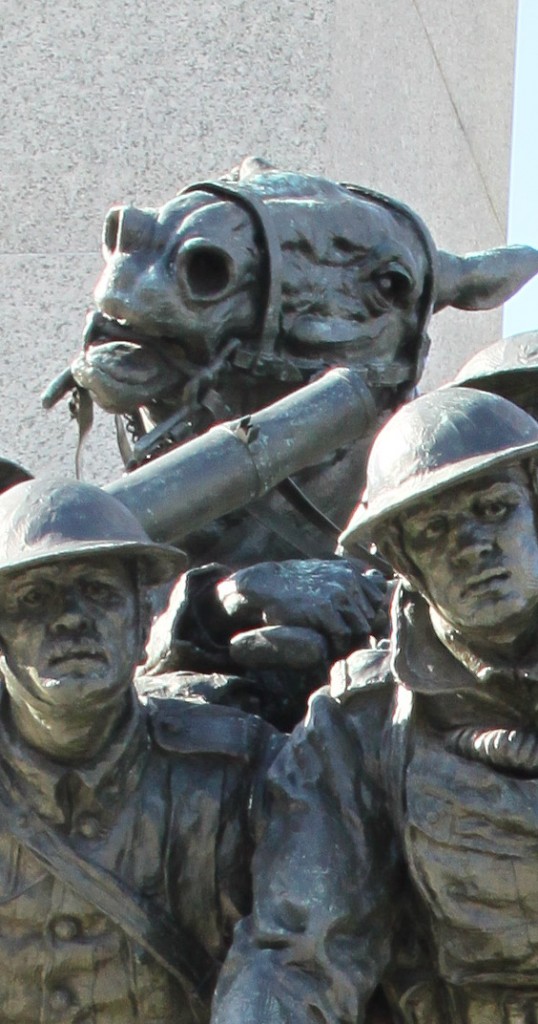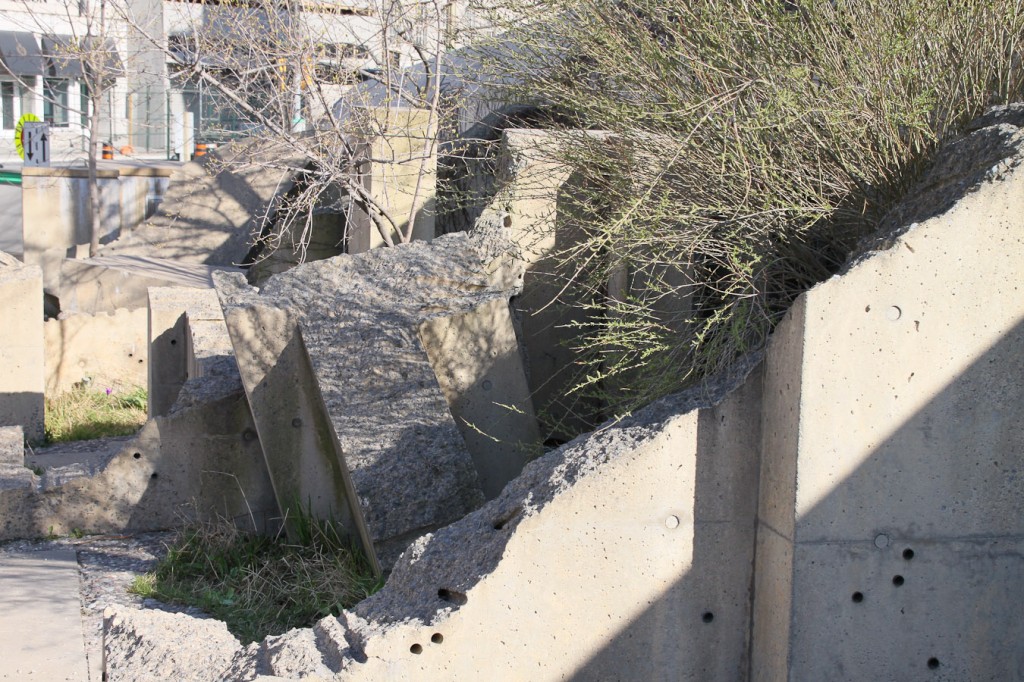Green Party, society, travel, USA
Canada… versus the USA
15 Apr 2010I’ve spent less than a week in Canada, to my sadness.
After a day, the differences between here and the US were tangible. After nearly a week, the differences are overwhelming.
As a young English guy from Guildford told me at a bar in Toronto, Canada has all the advantages of the US (which for him were late licenses and plentiful weed) with none of the drawbacks. To drugs and alcohol I might also add: liveable human-scale cities, cosmopolitan cultures, a national respect for linguistic and ethnic diversity, a relaxed and positive sense of national identity, decent public transport, a progressive political system that publicly funds political parties and outlaws all corporate donations, a largely non-psychopathic government, great outdoors (although so far I’ve seen a lot of low-grade grassland (it’s not prairie – that was killed that long ago)), plenty of space and natural resources (a mixed blessing), good comedians (apparently) and surprisingly good beer.
In Ottawa and Toronto (although not Montreal) I saw a very low level of homelessness. In fact I saw almost nothing but healthy happy people, in good houses, with a very nice quality of life.
Frankly, its surprising any Americans still live in the US.
Did I mention, Canada also has universal health care?
Canada’s health care bill argument had some of the same elements of people crying “communist” as we’ve just seen in the US; but that debate was concluded 50 years ago, and unlike the US, not only did the best side win, but it achieved a genuinely-progressive result: single-payer healthcare, similar to Britain’s National Health Service.
Respect for native (aboriginal (eg Inuit) and First Nation (Indian)) cultures is tangible. In the US, so far I’ve seen if anything a vague contempt. American national identity is monolithic, forward-thrusting. Canadian identity is plural, acknowledges other points of view, welcomes immigrants (although immigration is not easy), values discussion and diversity. In Canada – on the street, in public artworks, in monuments, in restaurants, in newspapers, in people’s homes – I’ve seen native culture reflected more times in literally three days than I have seen in the US in three months.
In America, people are still concerned that the US come “first”, that the US is “the best”. In Canada that idea is (rightly) laughable. Canadians don’t try to come first (except maybe when it comes to sports); they just try to be happy.
Then there is the public architecture. So much of American architecture is classical: Greek and Roman. Americans in their capital (as well as in the civic centre of New York) have imitated the architecture of other Empires. Public buildings stand like Pantheon after Pantheon: the Capitol, the Lincoln Memorial, the US treasury, most of the museums along the National Mall…. stone and marble pillar after classical scroll-topped pillar. The attempt to draw a comparison between old and new Empire is obvious.
Canadian style is – by comparison – relaxed. There is less unity in Ottawa’s public buildings, more (post)modernism, and more creativity, but Parliament hill, although grand, is more vernacular (if anything it reminds me of Edinburgh’s finest buildings) than monumental.
And in Ottawa, Canada’s capital, I found buildings you wouldn’t find (at least not prominently) in America: a striking and emotionally-provocative war memorial right in the middle of the street, rich in emotion, drama and realism. It contrasts with the WWII memorial on Washington DC’s National Mall in that the Canadian version is full of pain and suffering. The American version is monumental, sanitised; it demonstrates respect and gravitas and gratitude, but it doesn’t address the reality of war.
Nearby Ottawa’s war memorial, there is a large and poetic monument to Canada’s role as UN Peacekeepers.
My experience of Washington DC is that such a monument would be out of place; why should Americans see themselves as peacekeepers when they can reflect their country’s dominance and greatness?
But the main difference, and of course where it really matters, is the people. My experiences meeting several dozen Green Party people have surprised me in just how much Canadians respectfully welcome and cherish debate, even between very diverse people, and just how inclusive and welcoming they are. As we sat round a dinner table, people of several generations and different backgrounds were listened to and given time to speak, and debated with respectfully. No-one’s views were dismissed. You can see how this is both a reflection of and an influence on the national culture.
But I’m not saying that I think Americans aren’t friendly, individually. They really are. It always surprises me just how friendly and open Americans are; it is a credit to them, and gives the lie to the bad reputation the US government has abroad. But the difference is at the collective level; a background context of how Americans group together and co-operate, and their fears, insecurities and presumptions when they do. Clearly American society has failed to “gel” in terms of solidarity and unity. There is so much big money mitigating against ordinary people doing this, but when it comes to the big questions of society-wide co-operation – such as healthcare – America is a desperately and tragically individualistic place.
One Green Party candidate had this to say about the difference between Americans and Canadians:
“My observation is, personally, that in general Americans think of themselves as individuals as their foremost thought, and they think about the needs of other people around them.. friends, family, community, society, whatever… as a secondary thing behind that. Whereas Canadians tend to think about what other people are thinking as their first thought, with their own needs behind that”.
I don’t think it’s as true of Americans versus Canadian as it is of Americans versus Japanese people, for example. I say this because I saw some research the other day in a book that given a cartoon scene of one person smiling in the foreground and four people looking sad in the background, North Americans will spend 95% of their gazing time on the foreground individual, and this will led to them mis-interpreting the scene.
But I recognise that British people have a similar dynamic to Canadians when it comes to thinking about other people. British people ARE taught – and I’m still not sure this is a bad thing – to think first about what other people are thinking, what other people think of them, what other people are doing, needing. This makes British people sometimes hamstrung in their deference to others, and I value the enhanced ability of Americans to assert themselves, express themselves, to be emotionally intelligent, to be direct, to articulate their emotions, and (most of the time) to give full vein to what they’re feeling. I think British people could learn a lot from this, and would be happier: at work, at home, in themselves, in their relationships.
Yet I also value the British presumption that you should be polite to, and uncynical about people; that if somebody asks you a question in the street the response is to be polite and helpful, not to blank the person as if they didn’t exist (which has happened to me in New York. Just the other day a particularly funny example of something half way in between: I watched a young Manhattan business man literally let out a sigh as he turned his head towards me when I said “excuse me please”. When my question required only a one-word answer, I could see the surprise and relief on his face).
But I still have to defend America. When it comes down to it, who wants to visit a place where everybody is happy all the time…? It would be unbearable! I feel guilty admitting it, but I felt a real excitement coming back into New York City; with all its dirtiness, chaos, lights, people, confusion. Canada might have a great quality of life, but then so does Belgium.
And Canadians’ quality of life does not come without cost. Canada is still very much a corporate-capitalist country. Its position of being hugely rich in natural resources (particularly oil) make it responsible, directly as well as indirectly, for a large proportion of the world’s dangerous level of greenhouse gas emissions. But whereas in the US, wealth and individualism have brought division and a broken society with a hopelessly skewed and corporate-dominated polity, Canada’s wealth and subtle sense of co-operation have brought it universal health care, a better quality of life and a politics largely free of corporate involvement.
I can’t imagine a better example of how – even within the constraints of corporate-capitalism – individualism in facts leads to individuals being unfulfilled.
 Email This Post
Email This Post
15 Apr 2010 Matt Wootton

